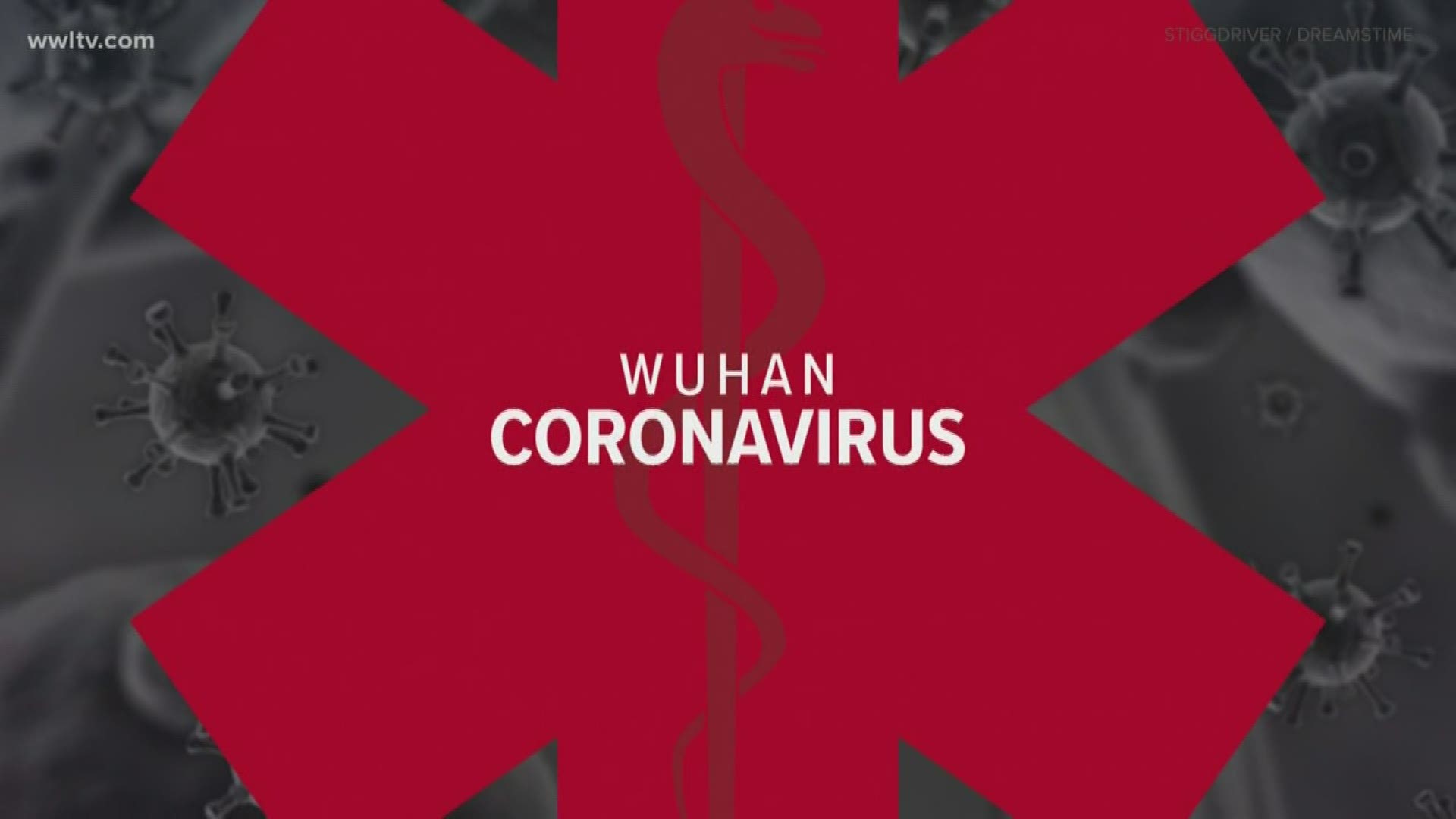NEW ORLEANS —
The first U.S. case of a coronavirus originating from China has been reported, and the U.S. Centers for Disease Control and Prevention have confirmed it.
The infected individual is a man in his 30s from Washington State according to Washington state epidemiologist Scott Lindquist, who spoke Tuesday at a press conference. The patient is in good condition and was hospitalized out of standard precautionary procedures.
Nine people have died and more than 400 have been infected so far in China by the mysterious respiratory infection. Chinese officials recently confirmed that the virus can be spread from person to person, although it is unclear how easily it spreads.
Dr. Nancy Messonnier, Director for the National Center for Immunization and Respiratory Diseases, said the travel-related spread of the illness has been confirmed in Thailand, Japan, Taiwan and South Korea.
The U.S. patient traveled to Wuhan, China where the virus is believed to have originated. The outbreak was initially connected to a seafood market in the mainland Chinese city, but human-to-human transmission could make the virus spread more quickly and widely. The patient in Washington did not visit any of the markets connected to the virus, and did now interact with anyone known to have been infected with the virus, according to CDC officials.
“What we don’t know is how effective that transmission is from human to human but that is going to dictate how many cases we are going to eventually see,” said Dr. Fred Lopez with LSU Health, Infectious Diseases.
The CDC confirms the patient traveled through Seattle-Tacoma International Airport on Jan. 15 and developed symptoms shortly after. When he saw a doctor, a clinical specimen was collected and sent to the CDC for lab testing. The diagnostic test for the virus is currently only available via the CDC, but the agency has announced that in the coming days and weeks it plans to share the tests with domestic and international partners.
“I think we should be worried,” said Lopez. “I mean we first started hearing about these cases several weeks ago in China, there have since been exported cases to Taiwan, Thailand, South Korea, Japan and now the state of Washington.”
The World Health Organization is expected to meet Wednesday to decide whether to declare this an international public health emergency.
CDC staff have already set up checkpoints at San Francisco International Airport, New York's JFK airport and at LAX in Los Angeles. More than 1,200 passengers traveling through San Francisco International Airport have been screened. Additional checkpoints will be added at Hartsfield-Jackson International Airport in Atlanta and O'Hare International Airport in Chicago.
CDC officials said it decided on Sunday to expand the screening and directed officials to start the process to begin a "funneling approach." Soon all passengers going from Wuhan to the U.S. will be redirected to one of the five airports with screenings in place.
The CDC explained it’s a complex process that includes reissuing tickets and rerouting passengers into the U.S. from direct and indirect flights from all around the world.
Despite the confirmed U.S case, Dr. Messonnier said the CDC "continues to believe the risk of this coronavirus on the American population is low right now."
Face masks are selling out and temperature checks at airports are the new norm as China tries to control the outbreak during the Lunar New Year travel rush.
The stock prices of some companies that sell masks have risen, but markets fell in much of Asia as investors worried about the potential impact on tourism and the economy. That prompted a selloff of for airline stocks and other travel industry-related stocks.

